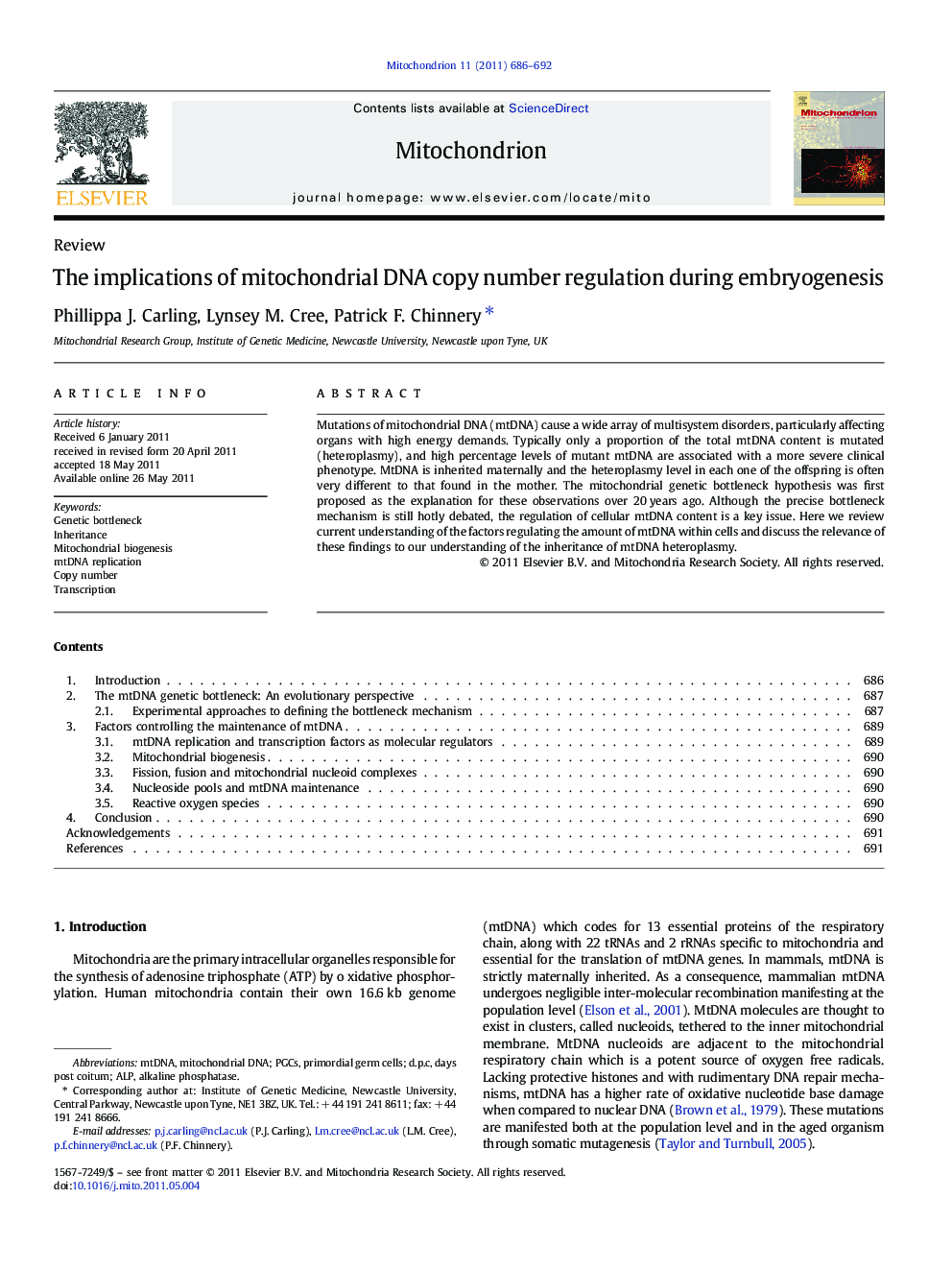| Article ID | Journal | Published Year | Pages | File Type |
|---|---|---|---|---|
| 2068780 | Mitochondrion | 2011 | 7 Pages |
Mutations of mitochondrial DNA (mtDNA) cause a wide array of multisystem disorders, particularly affecting organs with high energy demands. Typically only a proportion of the total mtDNA content is mutated (heteroplasmy), and high percentage levels of mutant mtDNA are associated with a more severe clinical phenotype. MtDNA is inherited maternally and the heteroplasmy level in each one of the offspring is often very different to that found in the mother. The mitochondrial genetic bottleneck hypothesis was first proposed as the explanation for these observations over 20 years ago. Although the precise bottleneck mechanism is still hotly debated, the regulation of cellular mtDNA content is a key issue. Here we review current understanding of the factors regulating the amount of mtDNA within cells and discuss the relevance of these findings to our understanding of the inheritance of mtDNA heteroplasmy.
